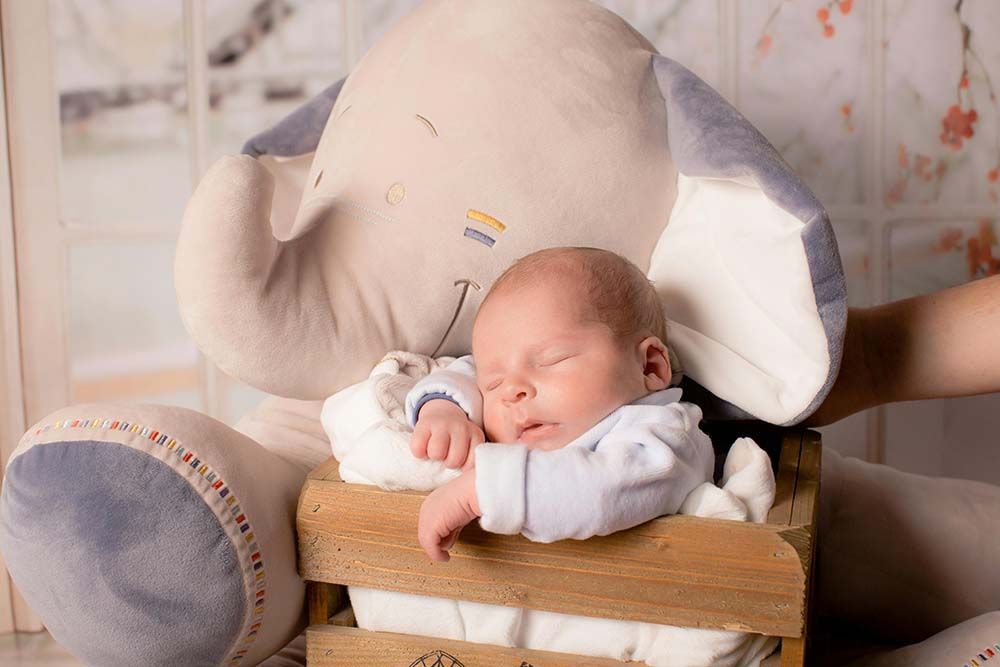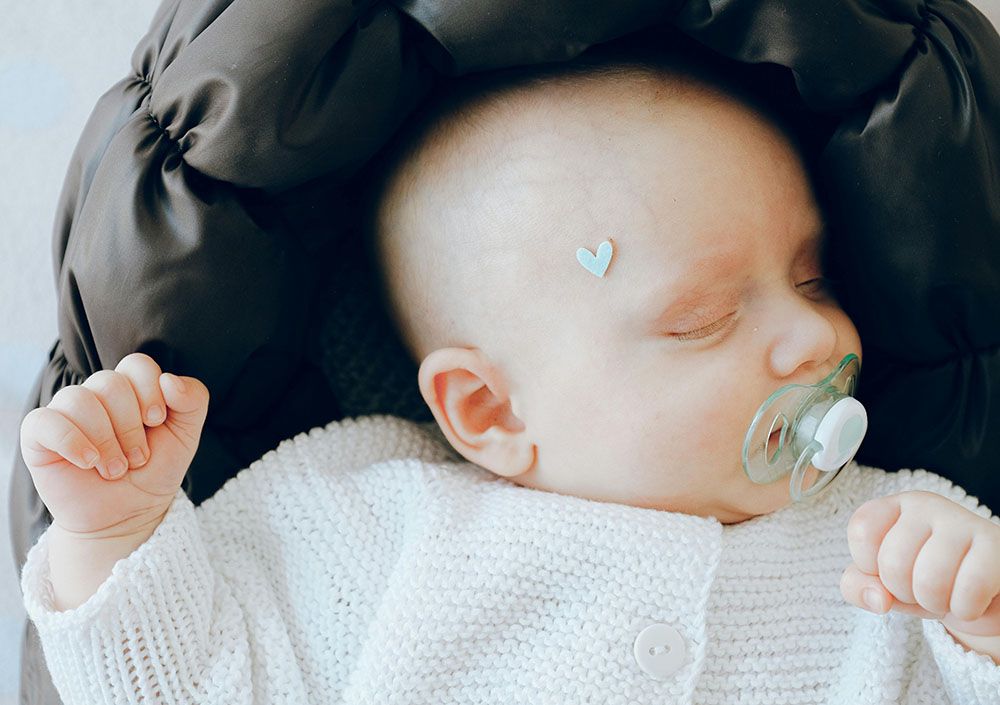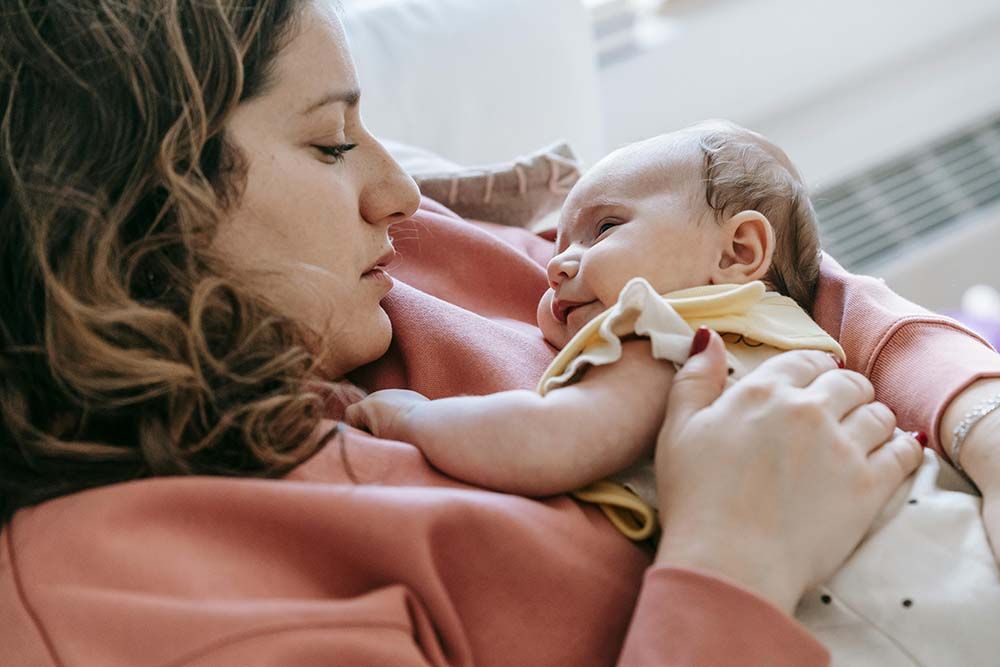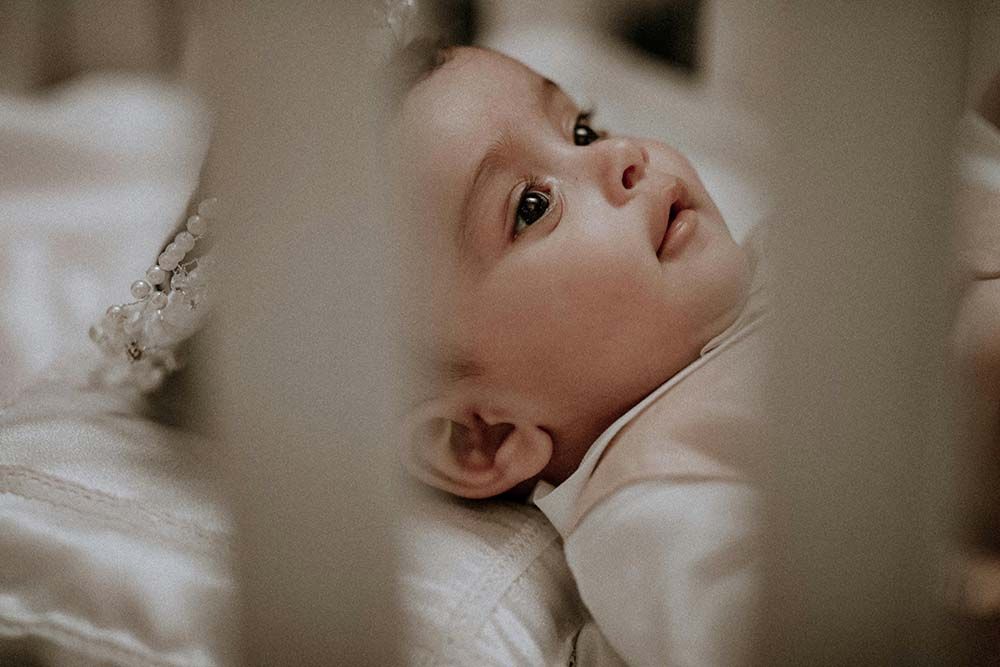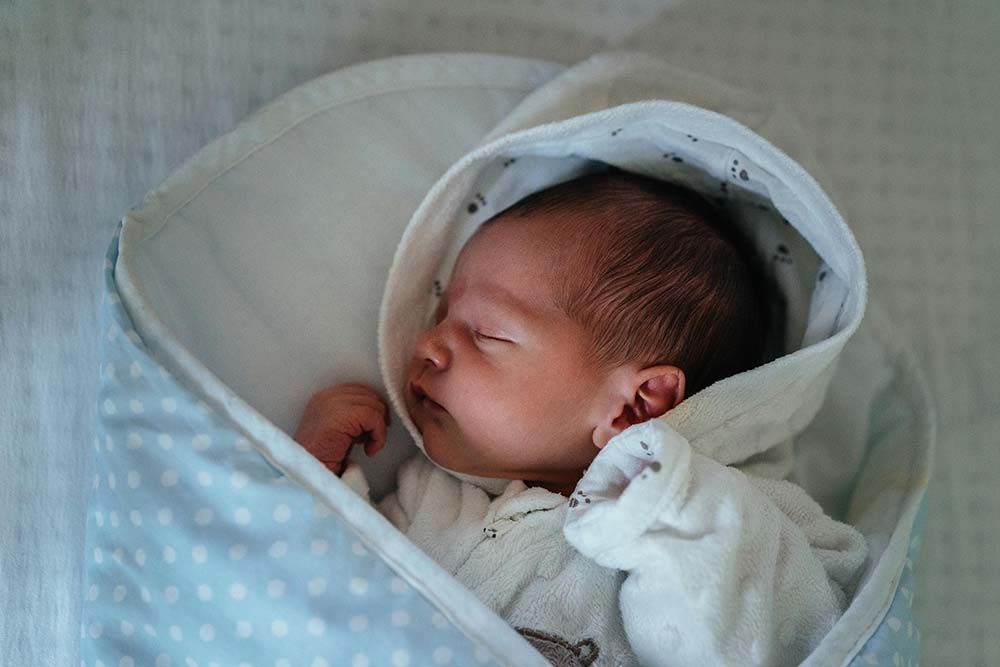

At seven months, babies continue to grow and develop rapidly, and their sleep needs and patterns still evolve. This period can be both exciting and challenging for parents as they navigate their baby's changing requirements. Establishing a consistent sleep schedule can help ensure that your baby gets the necessary rest to support their development. In this article, we'll explore the key components of a 7-month-old's sleep schedule, including wake windows, sample schedules, and practical tips for navigating common sleep challenges.
Besides, if you are troubled by your baby's irregular sleep patterns, it is recommended to use Moonycare app, a robust app dedicated in helping the needed record their babies sleep and awake time and then provide an accurate prediction of your baby's sleep pattern. After using it, you will find that it is a powerful assistant for sleep.
IN THIS ARTICLE:
What are Wake Windows for a 7 Month Old?
A Sample Sleep Schedule for 7 Month Old Babies
How Much Should a 7 Month Old Sleep?
How Long Should a 7 Month Old Nap?
How Many Naps are Suitable for a 7 Month Old?
Can you Sleep Train a 7-month-old?
Is there Sleep Regression for 7 Month Old Babies?
What are Wake Windows for a 7-Month-Old?
Wake windows refer to the time a baby can stay awake between sleep periods without becoming overtired. For a seven-month-old, these wake windows generally range from 2.25 to 3.5 hours. The length of the wake window can vary throughout the day, often being shorter in the morning and gradually increasing as the day progresses. This variation occurs because babies typically have more energy and are better rested after a full night's sleep or a long nap.
The first wake window of the day is usually the shortest, often just over two hours. This is because your baby is transitioning from nighttime sleep and may still be a bit sleepy. As the day goes on, wake windows tend to lengthen, especially if your baby is transitioning from three to two naps. The last wake window before bedtime is usually the longest, sometimes extending up to 3.5 hours. This extended period helps ensure that your baby is tired enough to fall asleep quickly and stay asleep throughout the night.
Sample 7-Month-Old Sleep Schedule
Creating a balanced sleep schedule for a seven-month-old involves coordinating naps and nighttime sleep to suit their developmental needs. Here's a sample schedule that many parents find useful:
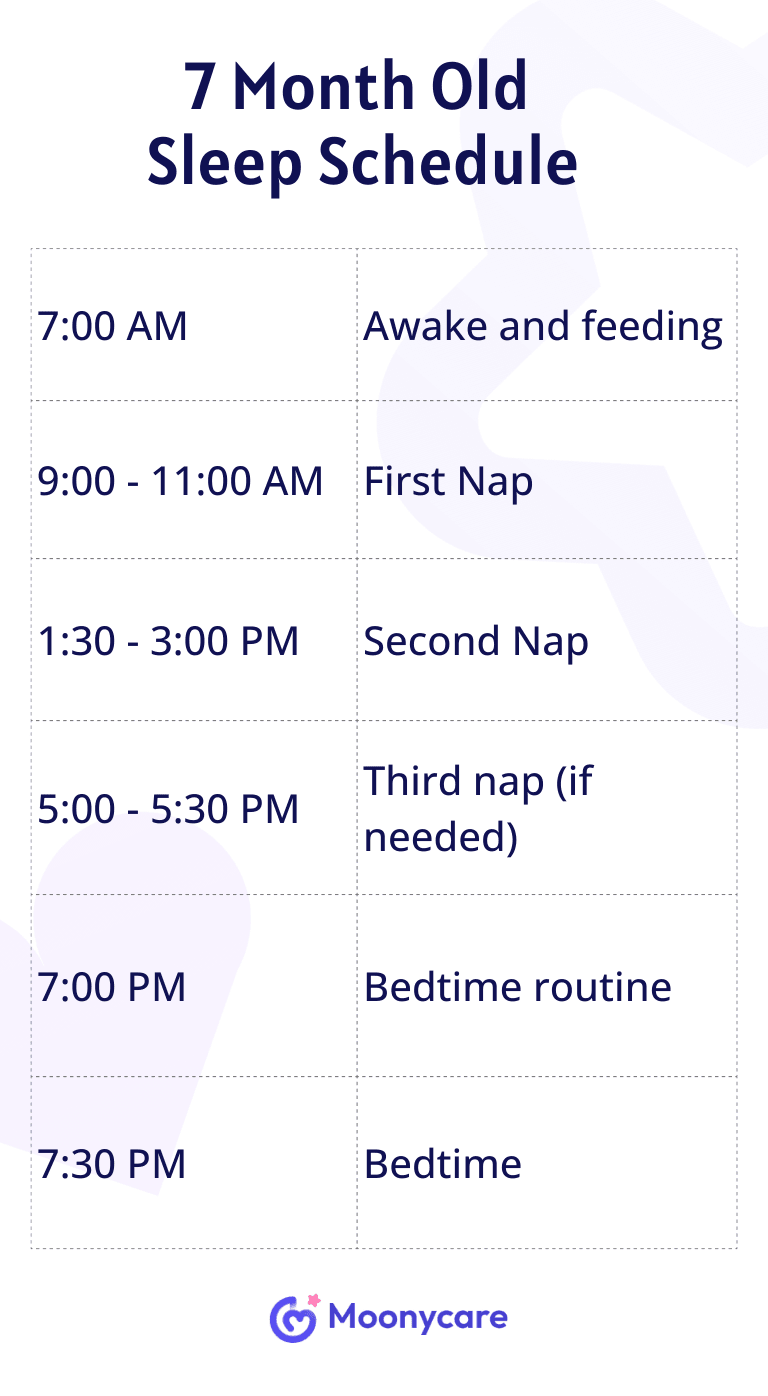
Not every baby can stick to a strict schedule. Some babies at this age may still require a third nap, especially if the first two naps are shorter than expected. The third nap, often a brief "power nap," helps bridge the gap between the last afternoon nap and bedtime, preventing overtiredness.
How Much Should a 7-Month-Old Sleep?
On average, a seven-month-old needs about 14-15 hours of total sleep per day, usually including nighttime sleep and daytime naps. However, each baby is unique, and some may require slightly more or less sleep. It's essential to observe your baby's cues and adjust their schedule accordingly.
Nighttime sleep, around 11-12 hours, is generally more consolidated at this age , with fewer nighttime awakenings compared to earlier months. However, some babies may still wake up once or twice during the night for a feeding or other factors, such as teething or developmental milestones. Daytime naps continue to be crucial for overall sleep needs and provide necessary breaks for rest and rejuvenation.
How Long Should a 7-Month-Old Nap?
Naps at seven months play a vital role in ensuring that your baby gets enough rest throughout the day. Ideally, each nap should last at least an hour. Longer naps help your baby complete full sleep cycles, which are essential for healthy brain development.
The first nap of the day, often occurring around 2-2.5 hours after waking up, is typically the longest and most restorative. The second nap follows a similar duration. If a third nap is still needed, it usually occurs in the late afternoon and is shorter, around 30-45 minutes. This shorter nap can help prevent overtiredness before bedtime, but it should not be too long to interfere with nighttime sleep.
How Many Naps are Expected for a 7-Month-Old?
At seven months, most babies take two to three naps a day. However, some may gradually begin the transition to two naps per day at this age. During this transition period, some days may include three naps, while others may only have two, depending on how long the first two naps are and how well your baby is handling longer wake windows.
It's important to follow your baby's cues during this period. Signs that your baby may be ready to drop the third nap include consistently resisting the third nap, taking longer to fall asleep at bedtime, or waking up earlier than usual in the morning. As your baby becomes more adept at staying awake for longer periods, the transition to two naps can help consolidate sleep and make for a more predictable daily routine.
Can You Sleep Train a 7-Month-Old?
Yes, seven months is an appropriate age to begin sleep training if you haven't already done so. At this age, babies are typically capable of learning to fall asleep independently and can benefit from the consistency that sleep training provides. Various sleep training methods can be used, depending on your comfort level and your baby's personality.
Common methods include the Ferber method, also known as graduated extinction, where parents gradually increase the time they wait before comforting their baby during night awakenings. Another method is the extinction method, also namely as "cry it out", where babies have to self-soothe without parental intervention. Alternatively, gentler methods like the chair method involve gradually moving farther from the baby's crib each night until the baby can fall asleep independently.
Is There a 7-Month Sleep Regression?
While a specific sleep regression is often noted around eight to ten months, some parents observe sleep regressions around seven months. These regressions can be linked to developmental milestones, such as increased mobility (like crawling), cognitive growth, or separation anxiety. During these times, your baby may have difficulty settling down for naps or bedtime, or they may wake up more frequently during the night.
If you notice a sudden change in your baby's sleep patterns, it may be due to a sleep regression. This period is usually temporary, lasting anywhere from a few days to a couple of weeks. Maintaining a consistent sleep schedule and bedtime routine can help your baby navigate through this phase.
7-Month-Old Sleep Tips
-
Establish a Consistent Routine: Adhering to a predictable bedtime routine, including activities like a bath, feeding, and reading a book, indicates that he needs to sleep.
-
Create a Sleep-Friendly Environment: Ensure your baby's sleep space is good for A dark, cool, and quiet room with white noise can help minimize disruptions.
-
Monitor Wake Windows: Pay attention to your baby's wake windows and signs of tiredness, such as rubbing eyes, fussiness, or decreased activity levels. Adjust nap times accordingly.
-
Be Flexible: While routines are important, flexibility is key. Some days may not go according to plan, and that's okay. Adapt your approach based on your baby's needs.
Conclusion
Navigating the sleep needs of a seven-month-old can be a complex yet rewarding journey. As your baby grows, their sleep patterns will continue to evolve. By understanding the typical wake windows, nap schedules, and potential challenges like sleep regressions, you can help your baby develop healthy sleep habits. Remember, every baby is unique, and what works for one may not work for another. Stay attuned to your baby's cues, and don't hesitate to seek advice from pediatricians or sleep consultants if needed. With patience and consistency, you can create a sleep environment that supports your baby's growth and well-being.







